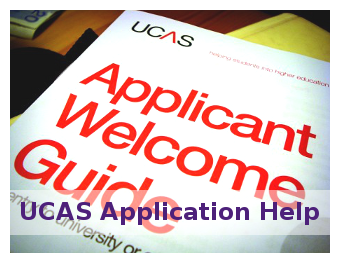- +91 22 23526372
- kgc@karangupta.com

Written by Overseas Education Consultant and Study Abroad Career Counsellor in Mumbai, Karan Gupta
You should ideally start your application process one year ahead of when you want to go and study in UK. You will then have ample time to finish the entrance tests and application procedures required by UK universities. The selection process of universities is based on several criteria and the final choice of university depends on your comfort level. Each country generally has its own ranking system which lists the top universities in each faculty. Rankings are just one of the criteria you should use in determining whether or not you want to apply to a particular university. Instead rely on information from alumni and current students. Remember, no matter which country you are applying to you must adhere to their rules and regulations and carefully follow all the application instructions.
The good news is that the UK application process is the simplest of all developed countries. After you have read through the mind-boggling process of applying to US universities you will find the UK application child’s play. Undergraduate students or students applying for Bachelors degrees, only need to fill out one UCAS or Universities and Colleges Admission Service form. This form can be completed by paper or online and you can send the form to a maximum of six universities. Besides the general information, the form also asks for a short personal statement and one recommendation letter from any professor. You can complete the online application on www.ucas.com
The postgraduate application is similar but you have to fill separate applications for each university. With two reference letters, a personal statement and transcripts of the degree college you are ready to apply.
The only exam that undergraduate students need is the IELTS or TOEFL. The SAT or ACT is not required by UK universities. Graduate students also need only the IELTS or TOEFL. There are exceptions as top MBA programmes require applicants to take the GMAT. Similarly applicants to London School of Economics may need the GRE for admissions. Your best bet is to individually check with each university what their admission requirements are before you apply.
The IELTS is a simple exam which tests your ability to speak, read, write and understand English. The different sections of the test are:
• Listening
• Academic Reading
• Academic Writing
• Speaking
The test results are available within two weeks. Candidates receive scores on a Band Scale from 1 to 9. Candidates are not allowed to repeat the test (Academic or General Training) within 90 days at any centre. The test scores are valid for two years. To register for the IELTS you can visit www.ielts.org or register through the British Council.
The GMAT seems to be the biggest hurdle for students planning for an MBA. But do only US universities need the GMAT? “When I checked with the top universities in the UK, most of them asked for a GMAT score of above 600. I was under the impression that I could escape the GMAT if I apply to the UK,” says Raghav Patel, a student planning to apply to the UK for an MBA.
The British MBA courses are moving steadily up the international rankings and many students are now applying for UK MBAs. European and UK B schools usually follow a one-year curriculum for their MBA programme and require candidates to have many years of work experience before they can be admitted. Thus the students not only gain from the curriculum but also have valuable inputs from an experienced class. Generally most of the top universities (no matter where they are located in the world) may ask you to take the GMAT before your file is considered for admissions. The ones who do require the GMAT tend to give more importance to work experience. Some universities also state that you have to be 25 years or over to meet the entry requirements.
As a rule of thumb, UK B schools do not need the GMAT. The schools which need the GMAT are the ‘top’ schools such as London Business School, Manchester Business School, University of Warwick, Oxford University, Imperial College, Cambridge University, and Cranfield University among others. However, if you do not have much work experience and would still want to apply for an MBA, sometimes a high GMAT score will tilt the admission scale in your direction. Of course, a high GMAT score is not a sure indicator of admission and top business schools eloquently put is as “a high GMAT score does not guarantee admission, and a below average score does not eliminate a candidate.”
When you begin with the application process your first step is to thoroughly research your potential universities. The entry requirements of each program need to be carefully understood including the work experience as well as the GMAT requirements.
Karan Gupta is the leading international education and career consultant in Mumbai, India. Since 1999, he has given career counselling and has helped thousands of students with study abroad and get admission and visas to universities and colleges in the US, UK, Canada, Australia, Singapore and EU and also helps them get scholarships, loans and financial aid. In addition to aptitude tests and career counselling, his firm also provides training and coaching for the GMAT, GRE, SAT, ACT, TOEFL, IELTS, and PTE exams. Karan Gupta is the best study abroad career counsellor, consultant and career guidance expert in Mumbai.
